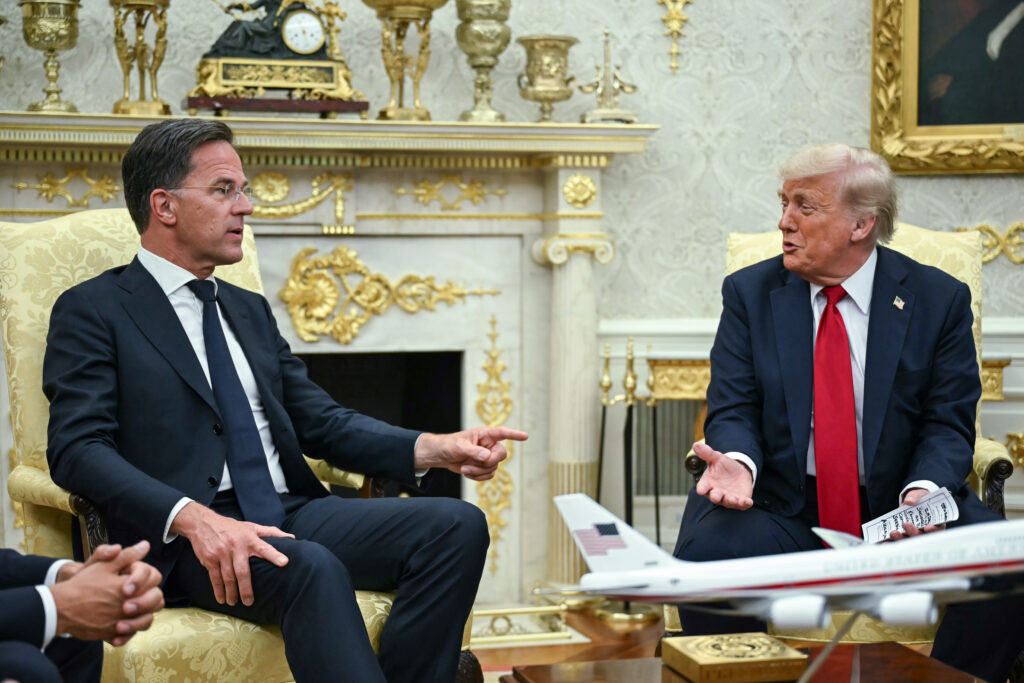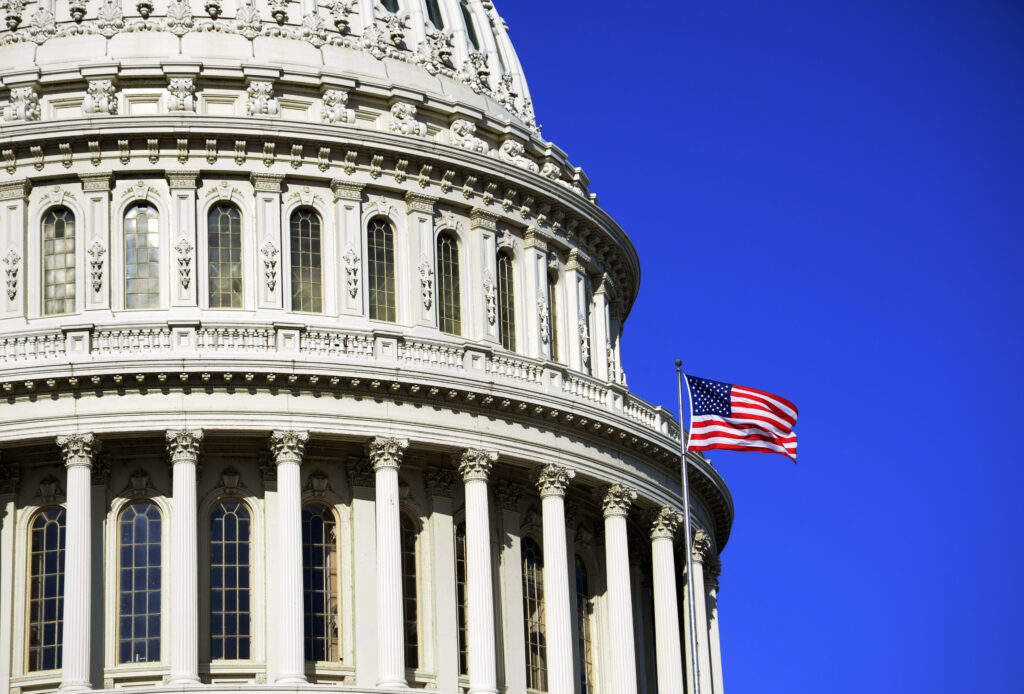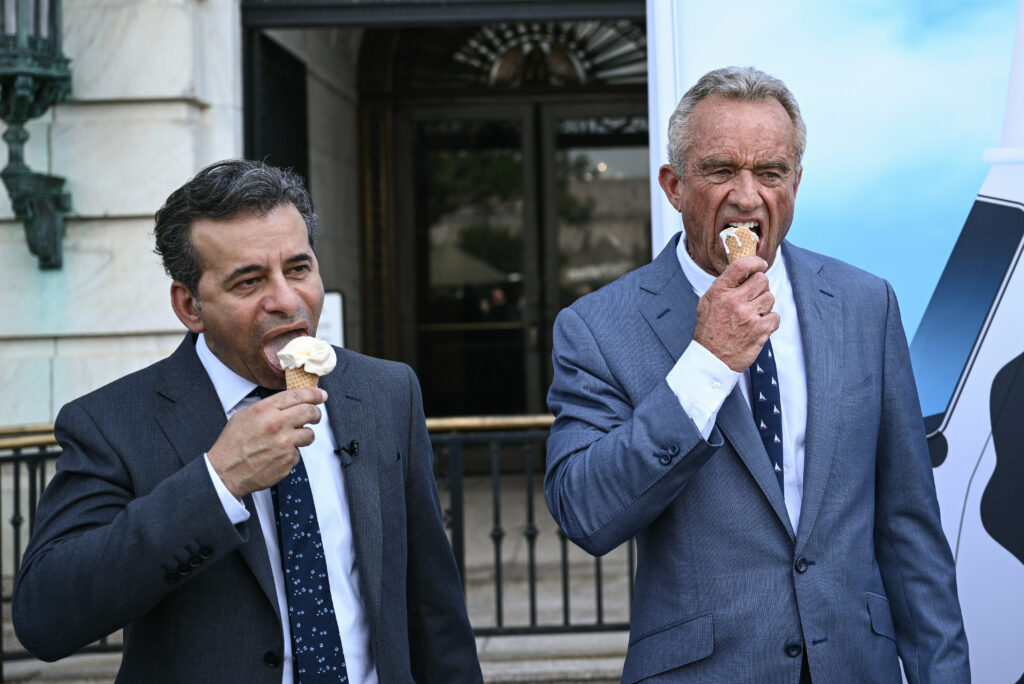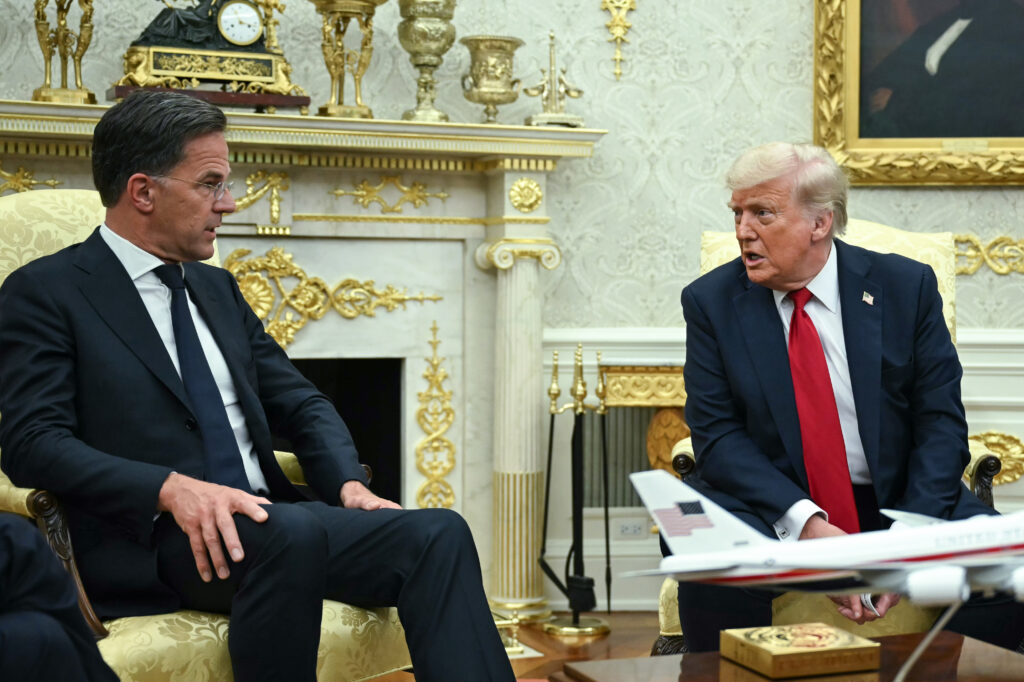Trump sours on Putin, but bromance may not be over
Ever since his political rise a decade ago, Donald Trump has sung the praises of Vladimir Putin — the Russian president was a “strong leader” who, perhaps more important, would often say “very good things” about him.With his announcement Monday of new arms for Ukraine via Europe and tariff threats on Russia, Trump’s bromance with Putin has hit a new low — but it may not have run its course.Trump, who had vowed to end the Ukraine war within a day of returning to the White House, said he was “disappointed” in Putin, who has kept attacking Ukraine as if the leaders’ telephone conversations “didn’t mean anything.””I go home, I tell the first lady, ‘You know, I spoke to Vladimir today, we had a wonderful conversation. She said, ‘Oh really? Another city was just hit.'””I don’t want to say he’s an assassin, but he’s a tough guy. It’s been proven over the years. He’s fooled a lot of people,” Trump said.Trump quickly rejected that he was among those fooled and again insisted that the 2022 invasion of Ukraine was the fault of his predecessor Joe Biden, who championed a hard line on Russia.Brandishing his favorite weapon, Trump gave Russia 50 days to comply before facing 100 percent tariffs on countries that purchase from Russia, but stopped short of backing a bill before Congress for up to 500 percent tariffs.Russia’s own trade with the United States has slowed down a trickle.Trump had “promised that he could get Putin to the negotiating table, and he has failed to do that,” said Heather Conley, a former State Department policymaker on Russia now at the conservative American Enterprise Institute.His tariff threat “shows frustration that he has failed to do it, but I don’t see it as a big policy change,” she said.- The great deal-maker? -Trump stunned European allies on February 28 when he publicly berated Ukrainian President Volodymyr Zelensky at the White House, telling him he was ungrateful for billions of dollars in weapons under Biden. Trump then briefly held up new military and intelligence.For the US president, a transactional-minded businessman, Putin committed a key offense — undermining Trump’s self-image as a deal-maker.”For six months, President Trump tried to entice Putin to the table. The attacks have gone up, not down,” Senator Lindsey Graham, a Trump ally who has led the push for tough new sanctions on Russia, told CBS News show “Face The Nation.””One of the biggest miscalculations Putin has made is to play Trump,” Graham said.Yet Trump has repeatedly shown a willingness to trust Putin, despite firm warnings from within the US government.Most famously, he sided with Putin over US intelligence at a 2018 news conference after they met in Helsinki after the Russian president denied meddling to support Trump in his first election.For observers of Putin, the longest-serving leader in Moscow since Stalin, there was never much chance he would accept compromise on Ukraine or work with the West.Putin has rued the demise of Russia’s influence with the fall of the Soviet Union as a historic calamity and rejected the idea that Ukraine has its own historical identity.With Russia making small but steady gains on the battlefield and bringing in North Korean troops, Putin has put his entire country on war footing, Conley said.”The Kremlin has thrown everything into this,” she said.”President Putin believes that this is just going to be a slow erosion of Ukraine’s position and the West’s position, and he will win this conflict on its own merits,” she said.Mark Montgomery, a retired US rear admiral and Senate policy aide, said Putin believed in what has been referred to as TACO — Trump Always Chickens Out.Putin “thought he could take it to the limit each time, and he found out he was wrong,” said Montgomery, a senior fellow at the Foundation for Defense of Democracies, a hawkish research group.”I don’t think this stops until Putin feels either weapons system pain or economic pain that he cannot sustain.”









